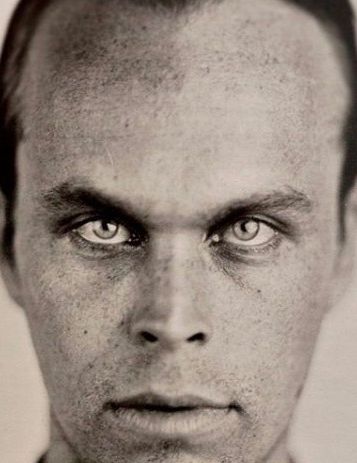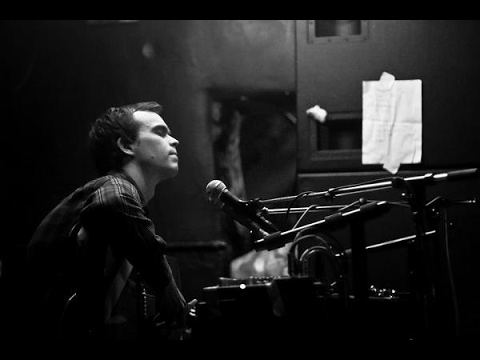It’s an overcast Sunday afternoon in East London’s Dalston, and I’m at Brilliant Corners, a venue that serves Japanese food and also hosts Classic Album Sundays, where people get together and simply sit and listen quietly to an album from start to finish. Today, we’ll be listening to the newly released Partners by composer, singer-songwriter, and producer, Peter Broderick; a man who hails from Portland, Oregon, and was one of the first artists signed to London’s most ethereal record label, Erased Tapes Records.
Before the lights are dimmed and the room hushed, Peter tells us all a bit about the album, before leaving the venue to go for a walk; he’s yet to hear the album, and plans on keeping it that way, something I’m keen to quiz him on when I interview him afterwards. Our host places the vinyl on the gramophone, the lights resembling moons on the ceiling are turned down, and the album begins. Partners is a John Cage inspired record of piano compositions with live processing, and the audience becomes entranced by the hypnotic sounds - except for when the fire alarm goes off halfway through, of course.
Afterwards, I head to an Italian just down the Kingsland road with Peter and the Erased Tapes crew. Once we’re settled in, I ask if he’s been to a listening party before.
“You know, I’ve been to album launches that have been labelled as such,” Peter says in his north-western American accent. “But they’ve always been more people socialising with the album playing on a loop in the background. I’ve never been to an event where it’s a more focused listening experience.”
I mention that if I invited my friends over to listen to an album in silence, they’d probably find that weird, which is a shame.
“It is a shame! It seems really special to me to have an event like that in this day and age. How often do people sit down and listen to an entire album?”
Partners is an album in which Peter used elements of chance, such as rolling dice, in the creative process, with a very strong influence from pioneering composer, John Cage.
“I read Begin Again (a biography of Cage),” Peter says, “and that really describes in depth his whole process. There’s always a lot of doubts and insecurities in any creative process, like ‘should I go in this direction, or that direction?’ Whereas Cage would set these parameters so that he could just work through it.”
John Cage’s aim, in using chance methods such as rolling dice to make creative decisions, was to remove his sense of self and ego from his music.
“That was his aim,” Peter continues, after ordering a big sounding salad from a waitress. “He wasn’t interested in the large ego that can come with a person who has been successful in their creativity. Oftentimes they start to think of themselves as a bit of a genius, you know?”

